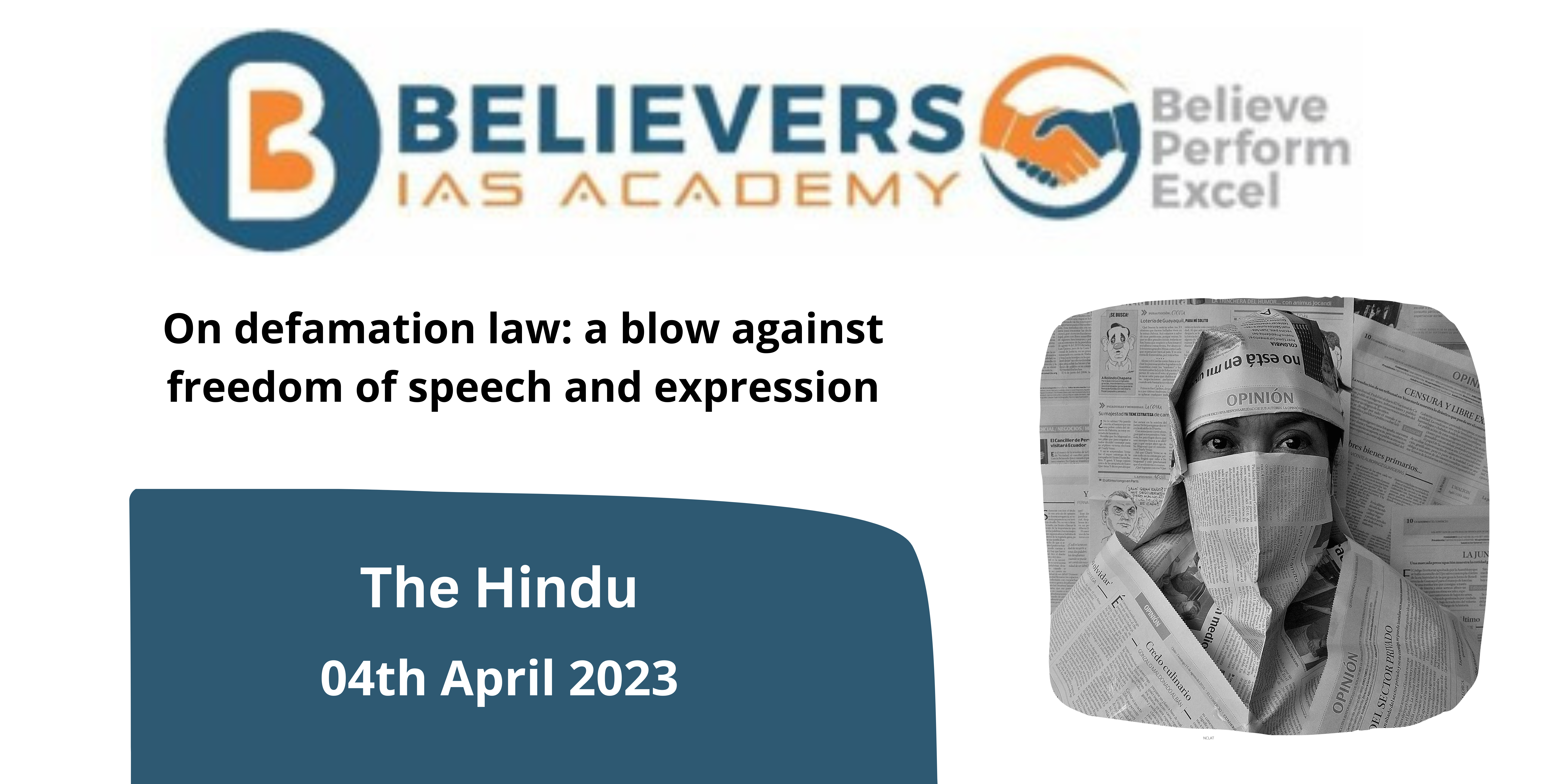On defamation law: a blow against freedom of speech and expression
Context:
- Former Congress President Rahul Gandhi was recently sentenced to two years of prison over a 2019 defamation case
Points to Ponder:
- In the past, defamation was prosecuted as a criminal offense to prevent violent duels. Even true statements could be considered defamation if they were intentionally defamatory.
- The Indian Penal Code (IPC) includes Section 499, which criminalizes intentionally defamatory statements. Dr. Subramanian Swamy filed a petition challenging the constitutionality of this provision, but the Supreme Court dismissed the petition and kept Section 499 intact.
- The Supreme Court based its decision on two arguments: (1) that the right to reputation is protected under Article 21 of the Constitution, which guarantees life and personal liberty, and (2) that criminal defamation law protects the feeling of fraternity or solidarity between members of society.
- The court’s decision to elevate reputation to the level of a fundamental right and to have it prevail over free speech has no basis in the text or structure of the Constitution and is a dangerous move.
- The court’s use of Article 21 as a sword to cut down the fundamental right to freedom of speech and expression is a serious threat to the future of constitutional rights.
- The court’s invocation of “constitutional fraternity” is problematic because it is not a part of Article 19(2) of the Constitution, which limits the circumstances under which the state can restrict speech. Fraternity is mentioned in the Constitution’s preamble as an aspirational goal, but it was never meant to become a tool to broaden the scope of restrictions upon fundamental rights.
- The fraternity was meant to complement civil rights, not destroy them. The Constitution’s framers did not use this symbolic term for a court to come along and use it as a reason to restrict free speech.
- The second argument made by the Supreme Court was to invoke something called “constitutional fraternity” to justify criminal defamation law. The court argued that criminal defamation law protected the feeling of fraternity or solidarity between members of society.
- In conclusion, the Supreme Court’s decision to uphold the constitutionality of Section 499 of the IPC based on the right to reputation and constitutional fraternity is problematic and has serious implications for the freedom of speech and expression. It elevates reputation to the level of a fundamental right and gives it precedence over free speech, which has no basis in the text or structure of the Constitution. It also uses an aspirational term like constitutional fraternity to cut down civil rights, which is a distortion of its original intent.




